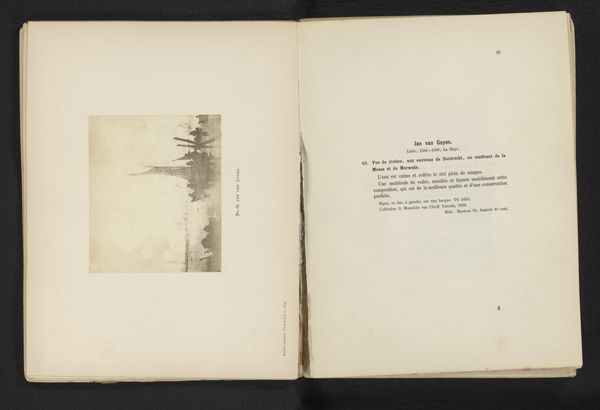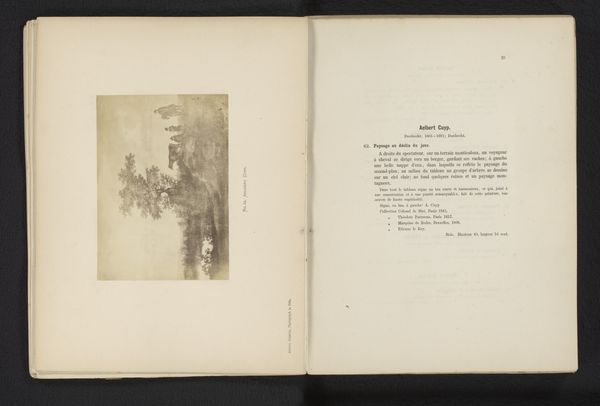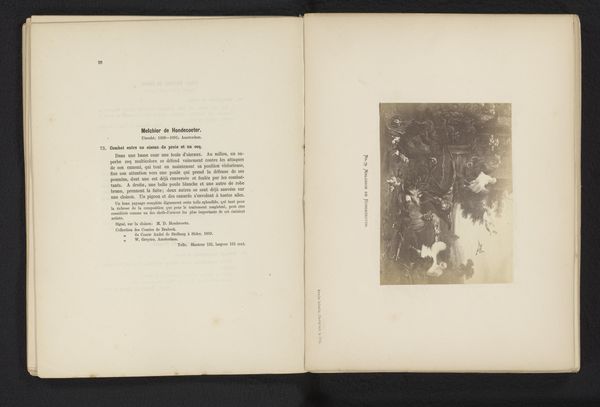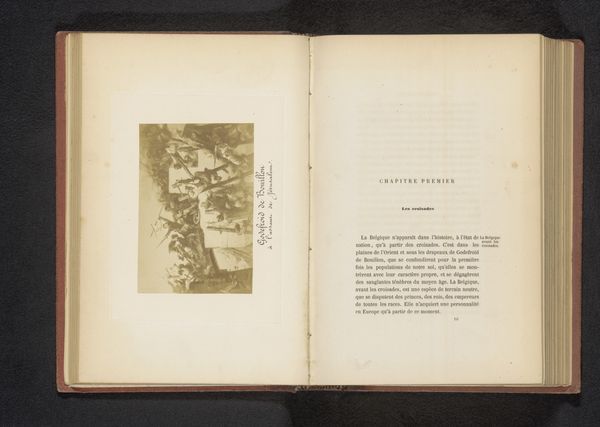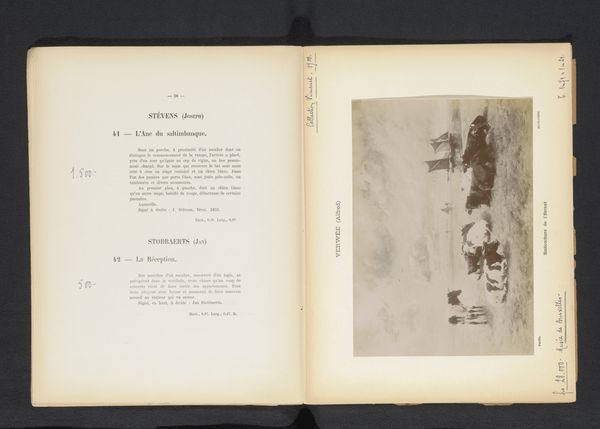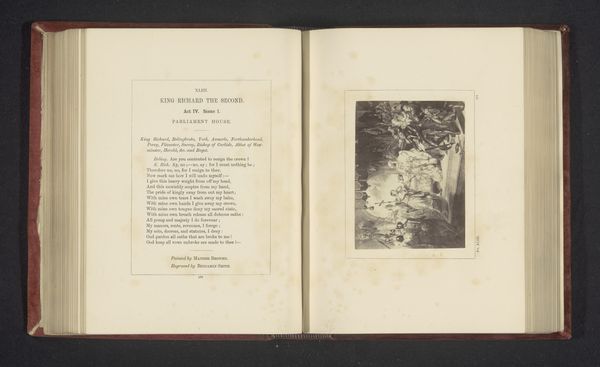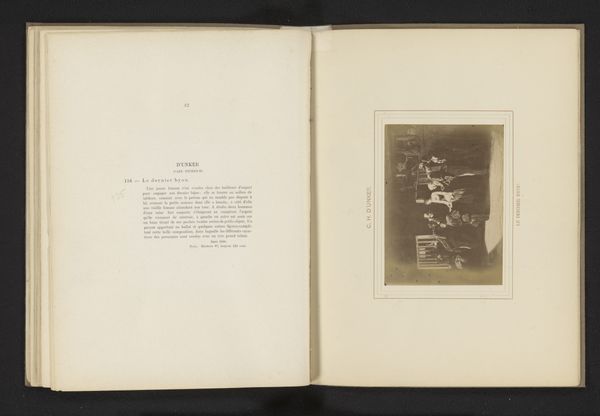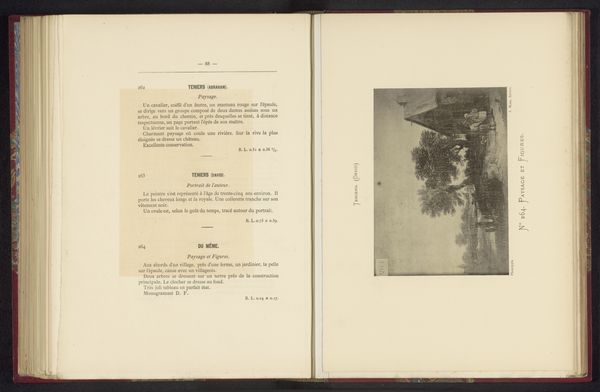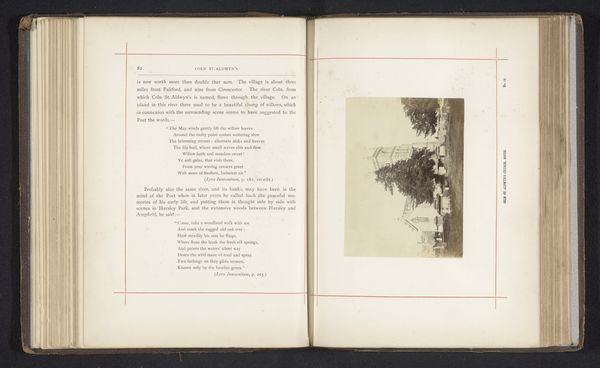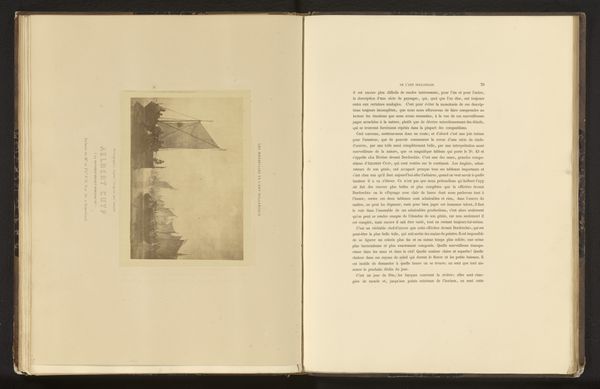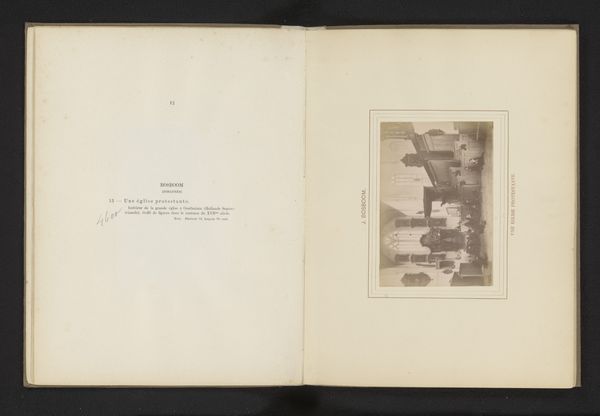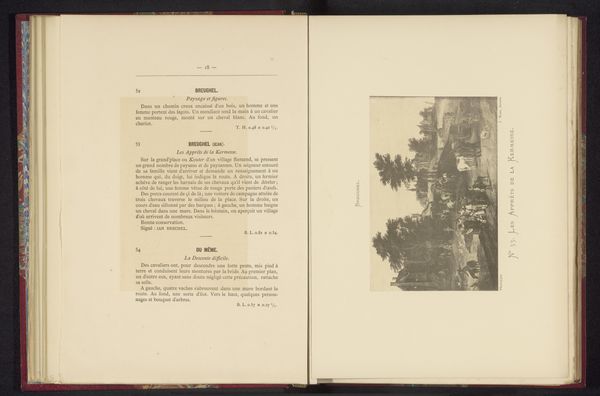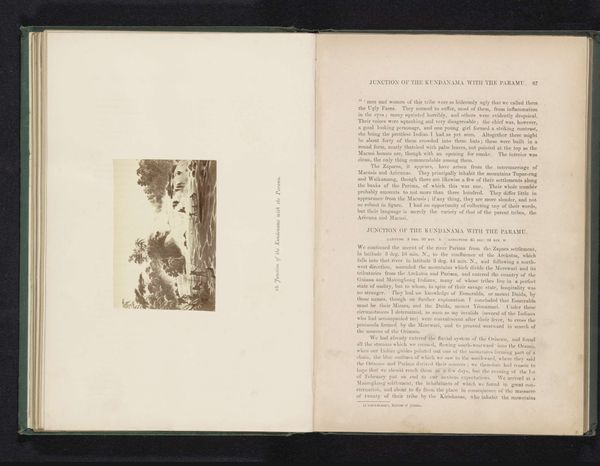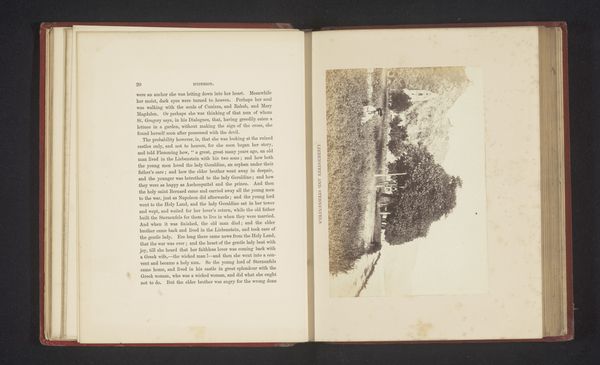
Fotoreproductie van een schilderij van een duinlandschap met rustende valkenjagers door Jan Wijnants en Johannes Lingelbach before 1876
0:00
0:00
print, photography
#
dutch-golden-age
# print
#
landscape
#
photography
Dimensions: height 92 mm, width 113 mm
Copyright: Rijks Museum: Open Domain
This is a photographic reproduction made by Anselm Schmitz of a painting depicting a Dutch dune landscape with falconers, originally by Jan Wijnants and Johannes Lingelbach. It reflects a period of growing interest in art history and the reproduction of artworks through photography. Consider the social context of the 17th-century Dutch Golden Age, where art was closely tied to commerce and social status. Wijnants and Lingelbach were part of a thriving art market. The image suggests themes of leisure, and the culture of falconry, reflecting the interests of the Dutch upper classes. This photogravure, created in the 19th century, speaks to the changing role of art institutions and the rise of art collecting as a middle-class pursuit. Art historians often consult primary sources such as artists’ letters, patronage records, and contemporary reviews to understand the cultural and social context of artworks. Examining these sources can reveal the complex interplay between art, society, and institutions. Art’s meaning evolves over time, shaped by the ever-changing social and institutional contexts in which it is viewed.
Comments
No comments
Be the first to comment and join the conversation on the ultimate creative platform.
